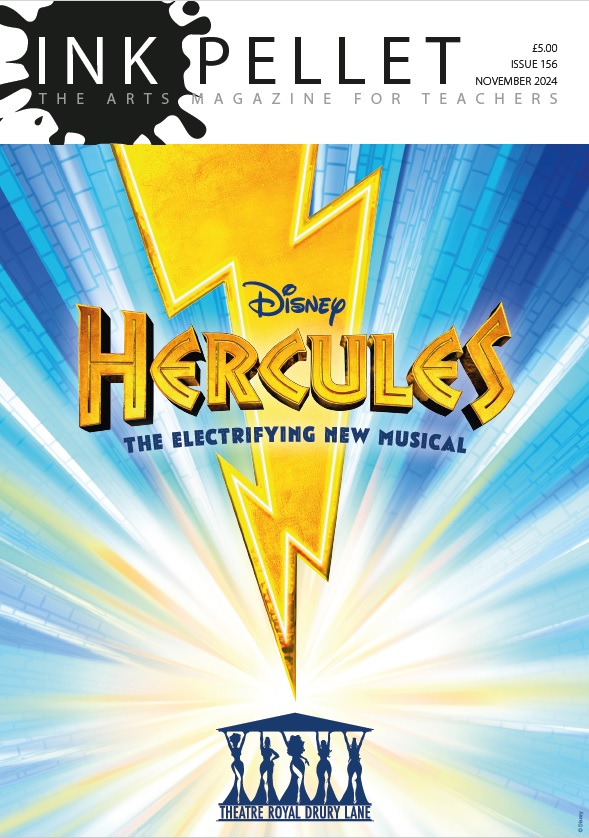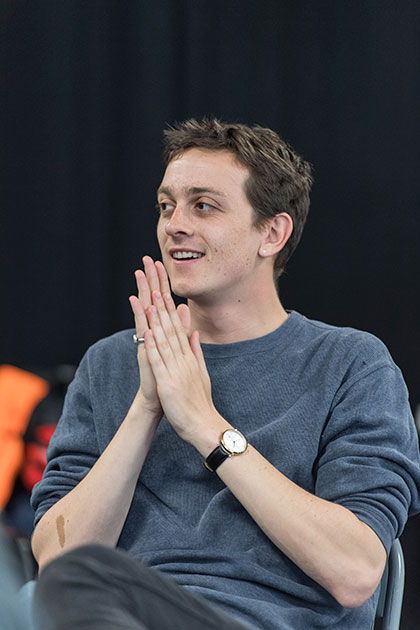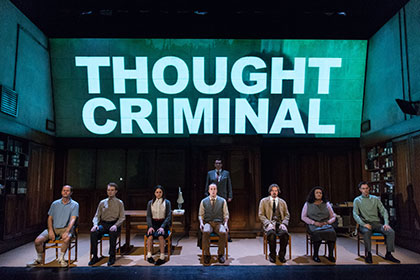JOSEPH BIRD interviews Daniel Raggett, Associate Director of 1984 at the Playhouse Theatre, about his inspiration, the new cast and his thoughts on the book ahead of its return to the London stage this summer.
What inspired you to go down the career path of becoming a director?
I was lucky enough to be taken to the theatre a lot when I was younger and I fell in love with it. I didn’t immediately know I wanted to be a director – I didn’t necessarily know what one was – but I knew pretty immediately that somehow I wanted to be involved in making shows like the ones I saw. I joined a youth drama school every Saturday and would try out a bit of everything, from acting to technical roles like lighting and sound. I didn’t really start directing until I was at university but it brought all of those disciplines together.
What has been your proudest moment within your career, at the theatre?
I’m not sure I have a single proudest moment, but I do feel proud when I hear audiences – particularly young audiences, those who may not go to the theatre a lot, or view it as ‘not for them’ – come to see a show I’ve worked on and find it interesting or exciting. It reminds me of how I felt when I first started going to the theatre and saw shows that blew my mind. I enjoy trying to create those same experiences for other people.
What has been the theatrical production that you’ve seen that has inspired you the most?
I am inspired by lots of different productions. Jerusalem by Jez Butterworth at the Royal Court was one of the most incredible pieces of theatre I’ve ever seen, but so was Kings of War – a recent amalgamation of Shakespeare’s Henry V, Henry VI and Richard III by the Dutch company Toneelgroep Amsterdam. It’s difficult to pin it down to one; and I’m just as inspired by other forms: films, TV series, podcasts, music, art. It seems like an obvious, and evasive, answer but each one offers something different and variety is important.
Do you think George Orwell’s novel 1984, published in 1949, is a visionary masterpiece and what have you enjoyed most about being a part of the current adaptation?
I’m nervous of labels such as ‘visionary masterpiece’ as they carry with them the baggage of expectation and stop us seeing the ‘thing’ (i.e. novel) itself. With this show, we set out to re-examine the novel, to put it back under the microscope, and what I’ve enjoyed most about being part of 1984 is the way in which it has challenged my expectations. I first read it when I was fourteen and came away with a relatively conventional idea of Orwell’s ‘dystopia’ – boiler suits and concrete and steel – I but working on it has forced me to interrogate this and realise that Orwell was writing something much richer and much more complex. The novel has become such a monolith and has been appropriated in so many different ways that, in fact, what most of us believe the novel is about is quite different from what is actually on the page. Indeed, it’s a novel that most of us haven’t even finished as Orwell’s Appendix – the Principles of Newspeak which lies at the heart of our adaptation – is often overlooked and, in many ways, is the key to unlocking the whole thing.
Upon its return to the Playhouse Theatre in London, the play is undergoing a new casting, do you think this will change the effect the play will have on the audience?
In short, yes – having a new cast will undoubtedly change the show as different people will bring a different energy to it. But fresh eyes and brains are an incredible advantage to a project that has existed this long. I don’t think this will change the effect the show has on the audience, but will undoubtedly breathe life into it and give it a new and different energy.
Over two years ago, the play started its life at Nottingham Playhouse, do you think the play has evolved since then, if so how?
Theatre is a live art form. It is all about the relationship between the actors on stage, and also between the actors and the audience. When you see a piece of theatre, you should be aware that it’s only ever going to happen that way once and then be gone – it is this ephemerality that makes theatre so special. It was vital that we didn’t allow the piece to ossify and that we kept building on it and pushing it forward over the past three years. In the same way, it’s inevitable that it will continue to evolve – it’s different every night for every new audience.
1984 is quite a mature novel, have you done anything to make the modern adaptation suitable for younger, student audiences?
No. As I say, I read the novel when I was fourteen years old. There is nothing in there that I couldn’t deal with at that age – or that couldn’t be watched nowadays on TV series like Breaking Bad or The Wire. We wouldn’t want to patronise our audience, but treat them with respect and honour their intelligence – to challenge them. We felt it was important not to dilute the brutality of the novel as that would be doing Orwell a disservice. However, by the same token, we don’t include anything which isn’t suitable for a student audience. I think the most alarming thing about the play are the ideas on language, and the way in which we use it to shape our reality, which lies at the core of Orwell’s thinking.
Were there any parts of the novel that were particularly difficult adapting to the theatre and why were they so?
I didn’t have a hand in the adaptation, but I’m sure the co-adaptors Robert Icke and Duncan Macmillan would tell you that it was all difficult to adapt! They were rigorous in their approach because they wanted to try and unpack the essence of the novel, to encourage people to see it anew and to subvert expectations; saying this, I would guess that the main challenge was to not simplify, but to be brave enough to hold on the intricacies and ambiguities of the source text. For me, the most complex part of the adaptation, and the thing that the whole novel – and this production – hinges on, is the Appendix and we are the only extant adaptation ever to include it.
If you could be part of directing any other production what would it be and why?
I have many dream projects which I hope one day to make a reality, too many to pick a single one – but I do have a firm belief that any time you make a piece of theatre you must – even in some small way – be trying to change the world. This sounds very grand, but really is a way to hold yourself to account, to interrogate what you’re trying to do and ensure that you are trying to make something that challenges people to feel or think about something in a way they never have before. Every audience should come out seeing the world in slightly sharper focus, which is exactly how I feel when I see a great piece of theatre.
1984 returns to the Playhouse Theatre, London from 14 June –
3 Sept 2016 with 101 seats for every performance available for £19.84 www.1984theplay.co.uk




